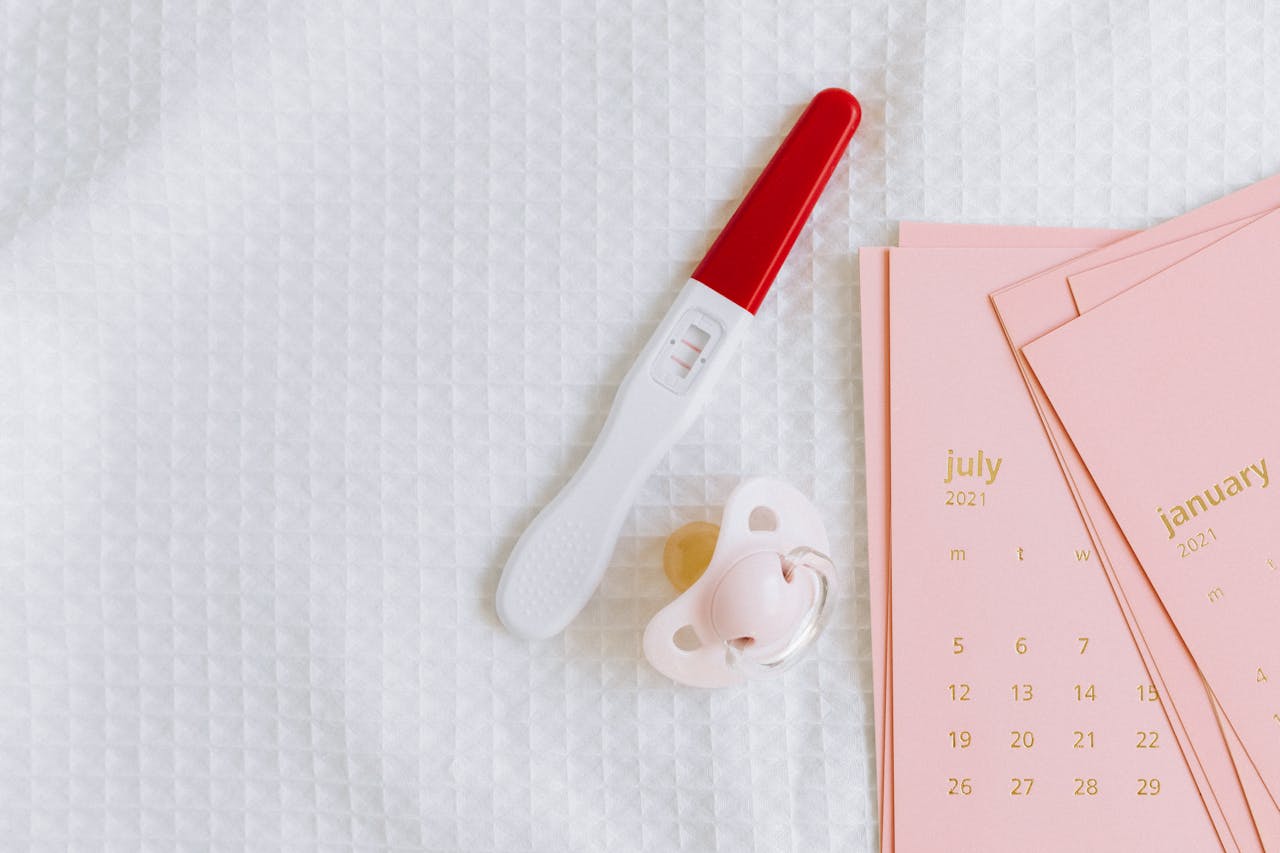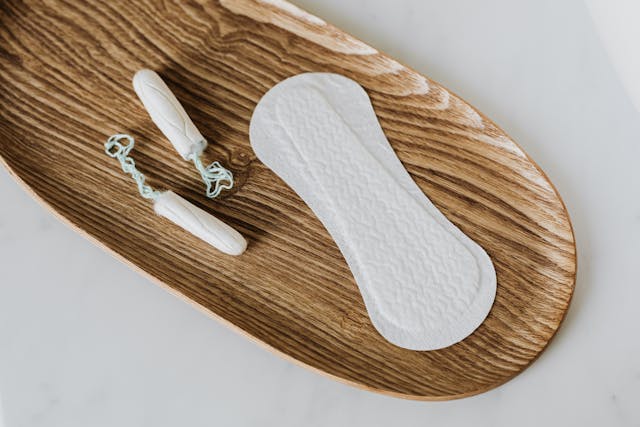How long does it take for pregnancy test to show positive?

How long does it take for pregnancy test to show positive? Learn how conception happens stage by stage and when it’s best to do a test for accurate results.
How long does it take for pregnancy test to show positive? All pregnancy tests, whether blood or urine, work by detecting the human chorionic gonadotropin (hCG) hormone. Its levels start going up right after implantation. However, it takes time for this hormone to build up in your system in order to be detected by a test.
Ideally, it’s recommended to wait until the first day of your missed period to take a test.
{{button}}
If you are trying to conceive, the waiting between the ovulation and the awaited positive test result may feel like forever. Of course, you want to know that you’re finally pregnant as early as possible. Besides, early detection is important for effective family planning and smart pregnancy decisions. So, it’s quite natural to have the urge to take a test as soon as possible.
On the other hand, there are still quite many misconceptions about the accuracy and timing of pregnancy tests. Doing it too early can result in false results and give you stress. But, how long does it take for pregnancy test to show positive?
In this article, we’ll delve into the important stages of conception and early pregnancy to tell you when the best time to take a test is.
Understanding the Conception Journey
In order to understand when you can have the earliest positive pregnancy test, you need to understand the entire timeline of conception and early pregnancy. So, let’s break it down into the most important stages:
- The first stage of your menstrual cycle is called the follicular phase. It follows the menstruation phase. During this time, your body releases estrogen, follicle-stimulating hormone (FSH), and luteinizing hormone (LH) that prepare you for the upcoming ovulation. These hormones stimulate your ovarian follicles to grow and the maturation of eggs. The end of this phase (about 5 days leading up to ovulation) is your fertile window, during which you can conceive.
- After the follicular phase, you have ovulation. That’s when the ovaries release a mature egg for fertilization. In a 28-day menstrual cycle, ovulation occurs around day 14 and lasts for 12-24 hours until the egg is reabsorbed into the body if it’s not fertilized by sperm.
- When ovulation is over, a fertilized egg needs to reach the uterus. It takes around 3-4 days for it to travel down the fallopian tubes.
- When a fertilized egg makes its way to the uterus, it needs to attach to its walls to begin a pregnancy. This process is known as implantation. It usually takes place 10-14 days after ovulation and can be accompanied by light bleeding or spotting.
- Implantation is the official start of your pregnancy. However, testing right after it is still too early because pregnancy tests detect the hormone called human chorionic gonadotropin (hCG), and your body needs time to build it up.
How Quickly Does hCG Surge in the Body?
If you’re asking yourself: “When will pregnancy test be positive?” Probably the most accurate answer is when you will have enough hCG for the test to detect. To have a precise answer, you should understand how the production of hCG happens after implantation.
hCG levels start surging instantly after the egg attaches to the uterine wall. However, it’s not a quick surge. According to general figures, hCG doubles every 48-72 hours after implantation. That is, you need to let it take at least 3-4 days to build up and be detected by a test.
How Long Does It Take for a Pregnancy Test to Show Positive?
When deciding what the earliest positive pregnancy test you can have is, it’s important to acknowledge that there are two types of pregnancy tests:
At-Home (Urine) Tests
Urine tests are the most common methods of early pregnancy detection. Available in any pharmacy, these tests are easy to do at home, and they are considered rather reliable.
Most often, it’s recommended to do an at-home test starting from the first day of a missed period. Although tests from different brands may have different sensitivities, from 10 mIU/ml to 25 mIU/ml, they should accurately detect pregnancy when it’s already the time of your next menstruation.
For those of you looking to do a test earlier, there are also some early-detection tests. However, it’s important to note that they might be less accurate since your hCG levels are still fairly low before you miss your period. So, it’s possible to get a false negative or faint line result.
Blood Tests
There is also an alternative to at-home urinary tests. Blood tests are meant to detect hCG in your blood rather than urine. They can be done by a healthcare provider in a hospital, or you can do it yourself using a special kit.
There are two types of blood pregnancy tests. The qualitative test generally detects whether you have hCG hormones in your body or not. And the quantitative test measures the exact level of these hormones.
Compared to urinary tests, blood tests are more sensitive. They can detect pregnancy much earlier – about 6-8 days after ovulation, and have over 99% accuracy.
Can a Pregnancy Test Be Positive at 2 Weeks?
Technically, yes. At-home tests can detect pregnancy as early as 10 days after conception. Most brands recommend doing tests only after the first day of a missed period. However, in a standard 28-day cycle, the first day of a missed period falls right on week 2 after ovulation (conception), which means that it’s possible to get a positive result. It’s best to choose tests with an hCG sensitivity of 25 mIU/mL for early detection.
However, it’s important to understand that female cycles are different and dynamic. Some women may have ovulation or periods later, which can affect the test result.
How Long Does It Take for Pregnancy Test to Show Positive? Top Factors That Affect the Result
When we try to answer the question: “How long does it take for pregnancy test to show positive,” it’s important to note that there are multiple things that affect the accuracy of the result. Let’s look at the main factors:
- Test type. The brand and quality of your pregnancy test play an enormous role. Whether you’re choosing a blood test kit or a regular urinary test, it's important to choose trusted brands that guarantee high sensitivity and accuracy.
- Test expiration dates. Although women rarely look at it, pregnancy tests also have expiration dates. After this date, the test is usually considered inaccurate and can give you a false result. Test transportation and storage can also affect its accuracy.
- Test use. Every pregnancy test comes with fixed instructions. Not following them can hinder the result. In the same way, you can decrease the test’s accuracy by doing it at the wrong time of the day.
- Cycle length and regularity. In order to detect the right timing for taking a pregnancy test, you need to know exactly when you ovulate and when your periods start. The typical timeframes, such as ovulation on day 14 of a cycle, are very generalized and may not reflect your real cycle. And these differences in cycle can also greatly affect your results. For example, late ovulation can delay the surge in hCG levels, which means you will need to take your test later.
- Implantation timing. As you already know, implantation is what actually marks the start of a pregnancy, not ovulation. And it can also vary in timing. Some women may have early implantation around 6 days after ovulation. Respectively, their hCG levels will build up faster, allowing for earlier detection. Other women, in turn, may have implantation on day 10 after ovulation. In this case, testing 14 days after conception will probably be too early.
- Medications. It’s also important to consider your existing medical conditions and any medications that you take. There are a few drugs that can affect test accuracy. In particular, medications used in fertility treatments might contain hCG and give false-positive results.
FAQ
How long does it take for pregnancy test to show positive?
It depends on a range of factors, including your cycle length and regularity, test type and sensitivity, and so on. Generally, it’s recommended to wait until you miss your period to test. At this time, most at-home tests should give an accurate result.
What’s the earliest positive pregnancy test I can take?
The very earliest you can test is 6-8 days after ovulation. Such an early detection might be possible with blood tests and highly sensitive urine tests. However, it’s important to remember that it takes time for hCG to build up in your body enough to be detected by tests. Hence, testing too early frequently leads to false results.
Conclusion
So, how long does it take for pregnancy test to show positive? As you now know, conception and early pregnancy are complex processes that consist of multiple stages. And though you want to know the result as early as possible, the rush is not recommended in this matter.
Basically, all pregnancy tests work by detecting hCG levels in your urine or blood. This hormone starts gradually increasing from the moment of implantation and needs some time to rise enough to be detected. Ideally, you should wait until you miss your next period to ensure the most accurate result.
{{pink-banner}}






.jpg)

.avif)
